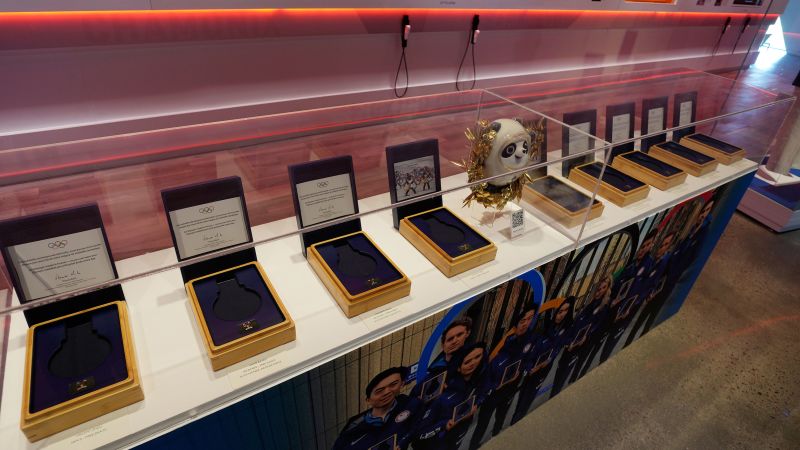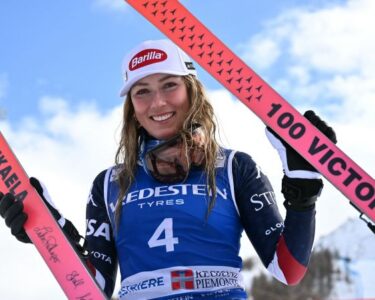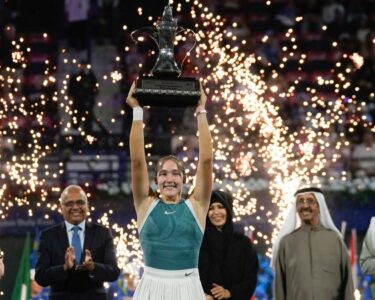CNN
—
Every athlete grows up dreaming of standing on an Olympic podium, with a medal around their neck.
For a moment in 2022, American figure skater Vincent Zhou thought he was living that dream at the Winter Games in Beijing, before it all turned into a nightmare.
Shortly after winning a silver medal in the team event on the ice, he tested positive for Covid-19 and was escorted to quarantine. That meant he was forced to withdraw from the men’s skating competition and barred from participating in the Closing Ceremony.
He tried to process the swirl of emotions in a video message that he posted on social media, saying at the time, “I’ve already lost count of the number of times I’ve cried today, but I’m happy to say that at least one of those times was happy tears. That was when I found out that I became an Olympic silver medalist.”
Despite his profound disappointment, the then 21-year-old concluded that all his dedication and sacrifice since the age of five had been worth it.
“To the future Vincent watching this, your younger self would be so proud of the athlete and person you’ve become now … You know why? Because you lived out your dreams. You became the person you always aspired to be,” Zhou said in his video message.
However, those dreams did not play out as he would have imagined. He’s never seen, held, or worn the medal that he worked so hard to attain.
The only tangible reward for performing as one of the best athletes in the world was an empty box, which was handed to him before leaving China.
“Testing positive and missing the individual event was already surreal enough,” Zhou told CNN Sport. “But then layers of complexity and absurdity kept on being added to the situation.
“I don’t think any of us thought that it would take this long to resolve what was a seemingly black and white case, but here we are. And it still feels every bit as surreal as it did on day one.”
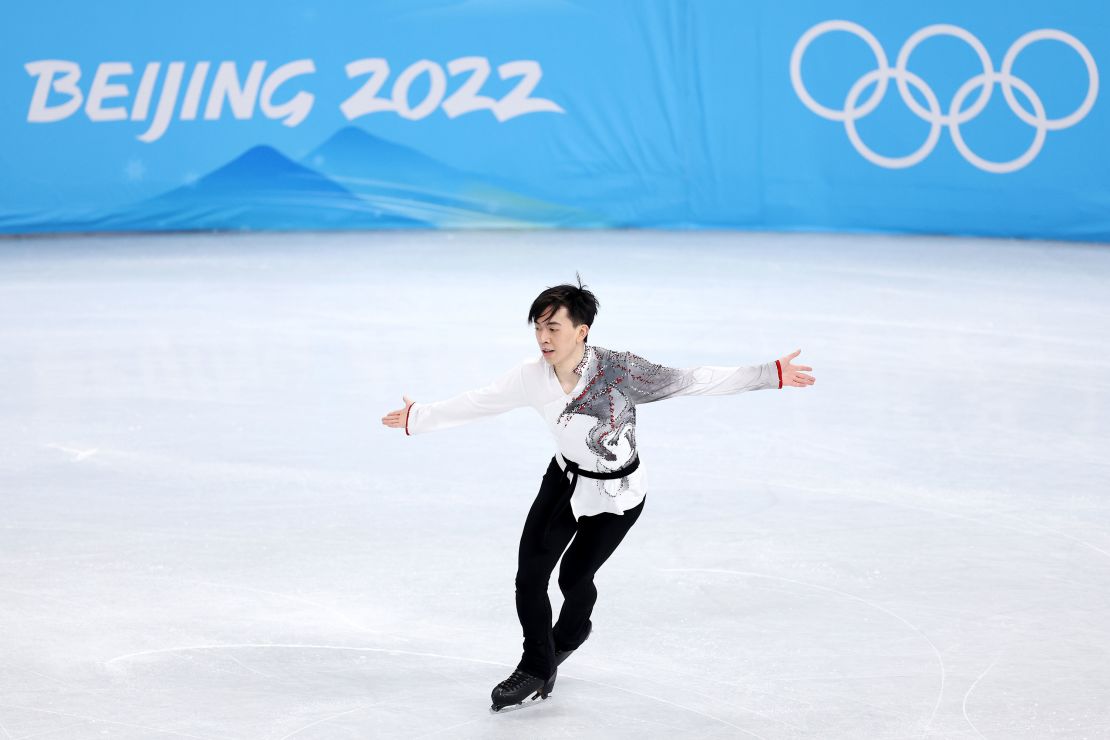
Banned substance
The Americans had finished second to a team of skaters competing under the banner of the Russian Olympic Committee, a consequence of Russia’s brazen state-sponsored doping scandal which had marred the Sochi Games in 2014.
But after the event, it transpired that one of Russia’s biggest stars in Beijing, 15-year-old skater Kamila Valieva, had tested positive for the use of a banned substance during a previous competition.
The medal ceremony was hastily postponed and instead, the skaters from Russia, the US and the bronze medalists from Japan, posed for the cameras holding only the official plush mascots of the Games.
According to US Figure Skating, it’s the only time in the history of the modern Olympics that athletes were not awarded their medals on site.
Valieva has claimed that her positive test for trimetazidine, a heart medication which can also boost endurance, had been ingested accidentally.
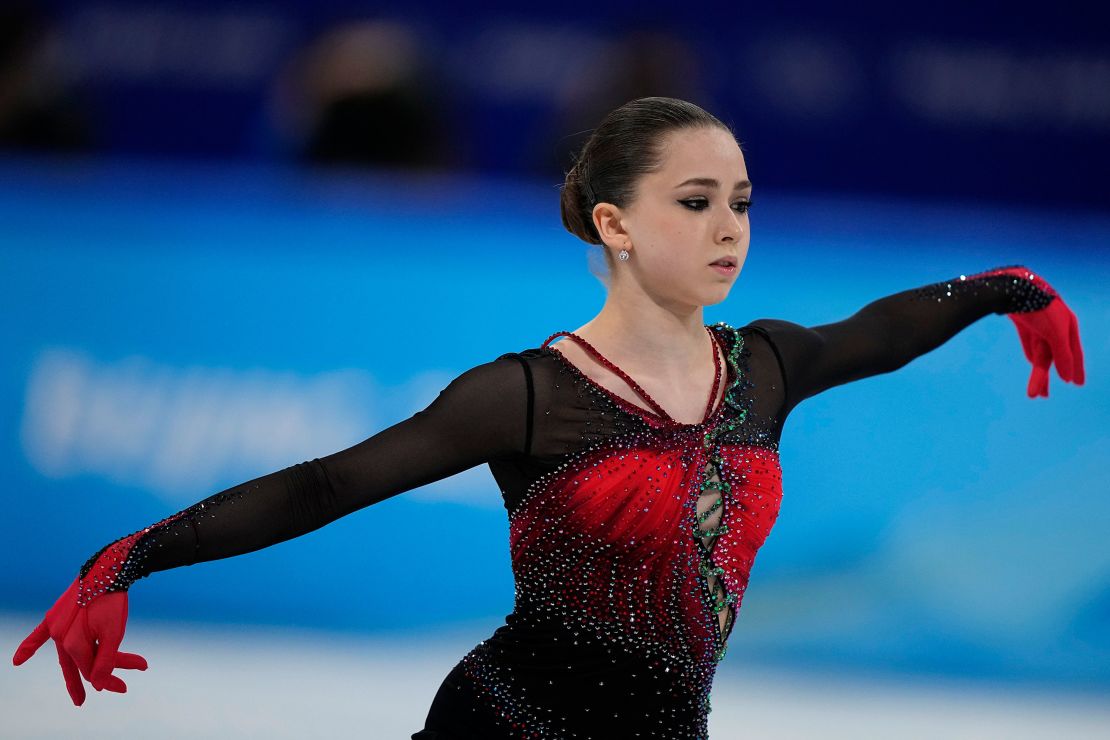
A year later, after a protracted investigation, the Russian Anti-Doping Agency (RUSADA) effectively cleared her of any wrongdoing, saying that while Valieva had violated anti-doping rules, she bore no ‘fault or negligence’ for the transgression.
Given their track record, RUSADA’s decision was appealed by the International Olympic Committee (IOC), the International Skating Union (ISU) and even a portion of the decision was appealed by RUSADA itself. The case is now being considered by the Court of Arbitration for Sport (CAS) in Lausanne.
While they were still in Beijing, Zhou recalled that the American athletes met with team liaisons from the US Olympic and Paralympic Committee (USOPC), who outlined the situation from an administrative and legal perspective.
“Obviously, not much was known at that time,” Zhou explains, “but we walked out of that meeting with a promise of goodwill and a promise that the issue would be resolved as quickly as possible.” Zhou adds he assumes that the Japanese skaters were having similar conversations.
However, in the 19 months since the Games, Zhou says the athletes feel as though they’ve been forgotten.
“We haven’t been told anything by the governing bodies and the organizations who are in power and responsible for making actual tangible decisions,” said Zhou. “All the communication we’ve gotten are the press releases that anybody who has internet access can read, so we don’t know any more than you do.”
In his statement released through the athletes’ advocacy group, Global Athlete, Zhou was highly critical of the IOC, the World Anti-Doping Agency (WADA) and CAS.
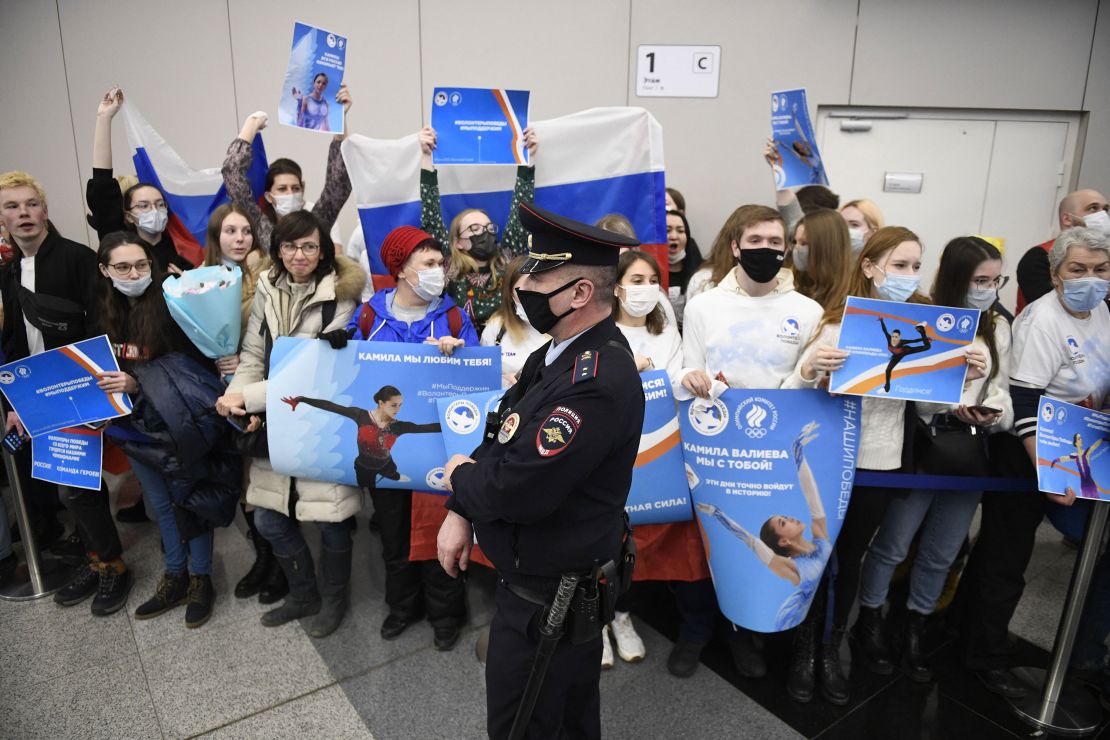
Rob Koehler, Global Athlete’s Director General, is also critical of the USOPC. “It’s surprising,” he told CNN. “They haven’t really stood up for their athletes.”
Koehler believes the reason is that national sports organizations value their athletes less than they do their relationships with other governing bodies.
“The athletes are expendable, but the partnerships with the international federations and the IOC are not, so they toe the party line,” said Koehler. “They don’t want to upset their friends above them; they don’t want to make any waves or upset anybody.”
The USOPC didn’t respond to CNN’s request for comment, but US Figure Skating said that it’s tried to advocate for its athletes.
Explaining that while it doesn’t have any legal standing in the process, US Figure Skating says it’s worked hard to communicate with its skaters and raise awareness of their situation. In June, it created an exhibit of the nine empty medal boxes at the US Olympic and Paralympic Museum in Colorado.
“U.S. Figure Skating will continue to stand alongside and support our athletes throughout this frustrating situation,” the organization said in a statement. “U.S. Figure Skating seeks a level playing field across the Olympic Movement and eagerly awaits the final results of the CAS hearing.”
By the time the skaters will have learned the outcome of the CAS hearing, it will be close to two years since one of their proudest achievements ended in such a bitter anticlimax, and the cost to each of them has likely been profound.
“There are significant economic costs associated with not receiving an Olympic medal,” Zhou said in his statement. “Sponsors love medals.”
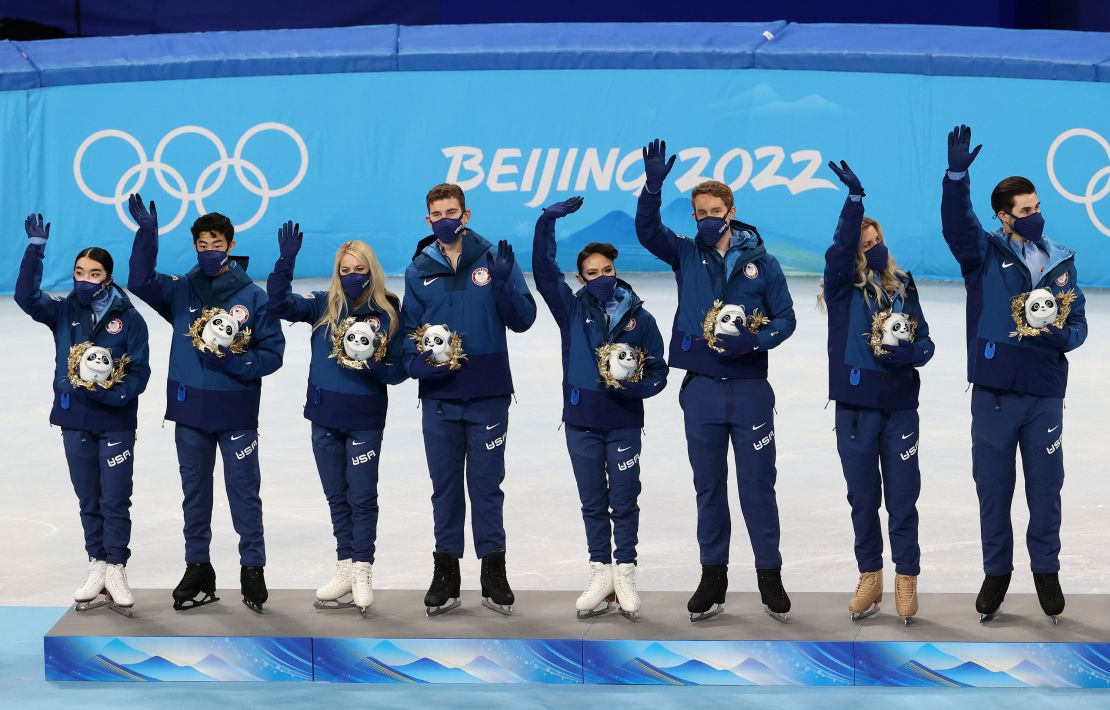
Zhou elaborated further to CNN Sport, explaining that figure skaters rely on the benevolence of partners to enable them to perform at the highest level.
“It gets very difficult when you put in all that work, and you don’t actually have anything to show for it,” the US skater added. “Sponsors look at you like, ‘Well, you’re not an Olympic medalist.’ Your market value just simply is not the same.”
As a result of the lengthy delay to resolve the case, Koehler believes there could be a case to sue for damages and lost earnings.
“These Olympic athletes fund a multi-billion dollar industry,” Koehler said, noting that the IOC brings in $2.4 billion annually. “The athletes directly get less than half a percent of that. They’re not compensated for attending the Games. And the IOC leads athletes to believe that, if they’re a medalist, they’ll be set for life, which is a façade.
“And yet, when they deservedly should be taking home a medal, they are refused, so they can’t celebrate and capitalize from something they have worked so hard for. The IOC has robbed them of that, right from the beginning. It’s not an athlete-first organization; it’s a disgrace.”
If CAS rules against Valieva and Russia’s victory in the team figure skating event is nullified, the US athletes would be awarded gold medals, instead of silver. But in the meantime, they effectively have nothing, and Koehler believes that whenever the case is resolved, it will be too late.
It would be hard to estimate the financial cost to each of the individual athletes swept up in this case, but in 2016, American shot putter Adam Nelson told CNN of the nine years that passed between his silver medal finish at the 2004 Olympics and the gold medal that was eventually handed to him at the airport food court in Atlanta.
Yuriy Bilonog, the man who’d beaten him in Athens, was disqualified in 2012 after retroactively testing positive for the banned steroid, oxandrolone.
“Well, there’s an immediate feeling of loss,” Nelson lamented. “An immediate feeling of frustration, an immediate feeling of anger. You start to do the math and you say, ‘Man, this really could have changed the trajectory of my life.’”
Nelson estimates that he missed out on $500,000 because he only took silver in 2004, and that, over the span of his 12-year career, Bilonog’s cheating cost him a total of $2.5 million.
Zhou has grown to be highly skeptical of the organizations that govern international sport, and their willingness to tackle cheats and hold them accountable.
The US team, as well as Japan and Canada, who finished fourth and who may end up with a bronze medal, asked for permission to observe the CAS proceedings in Lausanne, but since none of the parties directly involved in the case – RUSADA, WADA, the ISU and Valieva – had asked for a public hearing, it’s happening in private.
“We just want an observer to ensure that the proceedings inside are impartial and that there’s no shady business going on,” Zhou put it bluntly to CNN.
“There’s been a shocking lack of transparency. These are the governing bodies that exist to enforce the principles of fair competition, clean sport and act on behalf of the people for whom they exist to serve – the athletes. It’s hard to feel good about what’s going on right now.”
In a statement, the Director General of CAS, Matthieu Reeb, told CNN Sport: “CAS must respect the parties’ will. CAS is at the service of its users and cannot impose publicity against their will.” Reeb also said that CAS cannot be blamed “with respect to the duration of the procedure.”
<div data-uri="cms.cnn.com/_components/video-resource/instances/cln2ync85003w3b6i25l6tmhl@published" data-component-name="video-resource" data-editable="settings" class="video-resource" data-fixed-ratio="16×9" data-parent-uri="cms.cnn.com/_components/video-resource/instances/h_7dfc143955d216867e11f9ea871a1eaf@published" data-video-id="sports/2023/09/25/exp-vincent-zhou-chat-fst-092505p-seg1-cnn-sports.cnn" data-live="" data-analytics-aggregate-events="true" data-custom-experience="" data-asset-type="hlsTs" data-medium-env="prod" data-autostart="unmuted" data-show-ads="true" data-source="CNN" data-featured-video="true" data-headline="US athlete speaks out ahead of Valieva hearing" data-description="The U.S. figure skater Vincent Zhou released a lengthy statement Monday on the failure of IOC, WADA and CAS in the case of Russian figure skater Kamila Valieva. While the CAS hearing finally begins in Lausanne Tuesday, the now 22-year-old and his teammates have waited 595 days to receive their Olympic medals which were withheld at the Beijing Olympics back in February 2022. <br />" data-duration="07:24" data-source-html='<span class="video-resource__source"> – Source:
<a href="https://www.cnn.com/" class="video-resource__source-url">CNN</a>
</span>' data-fave-thumbnails='{"big": { "uri": "https://media.cnn.com/api/v1/images/stellar/prod/230925180033-exp-vincent-zhou-chat-fst-092505p-seg1-cnn-sports-00000927.png?c=16×9&q=h_540,w_960,c_fill" }, "small": { "uri": "https://media.cnn.com/api/v1/images/stellar/prod/230925180033-exp-vincent-zhou-chat-fst-092505p-seg1-cnn-sports-00000927.png?c=16×9&q=h_540,w_960,c_fill" } }' data-vr-video="false" data-show-html="” data-byline-html='<div data-uri=”cms.cnn.com/_components/byline/instances/byline_h_7dfc143955d216867e11f9ea871a1eaf-video-resource@published” class=”byline” data-editable=”settings”>
</div>’ data-check-event-based-preview=”” data-network-id=”” data-details=””>
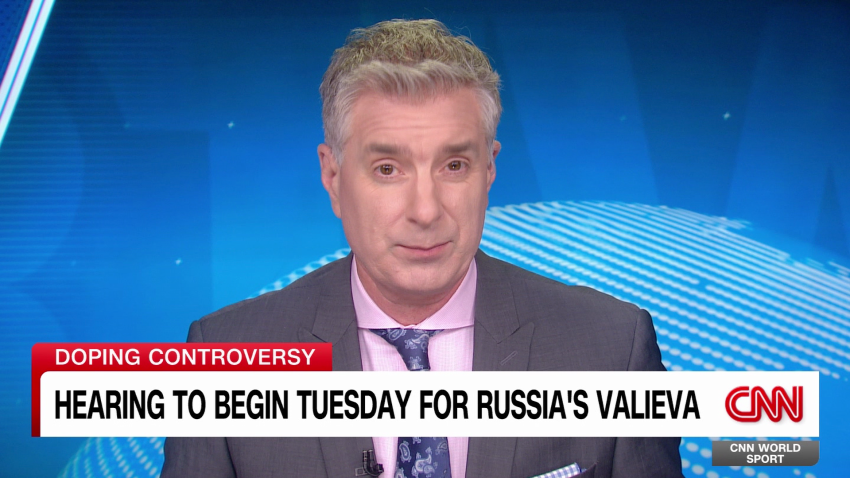
07:24
– Source:
CNN
In his statement, Zhou castigated the organizations who are responsible for ensuring a level playing field for all.
“The Russian ‘Anti-Doping’ Agency has been facilitating Russian doping for over a decade. The IOC, for its part, has repeatedly refused to hold Russia accountable for a state-sponsored doping program involving more than 1,000 athletes,” said Zhou.
“WADA, which is controlled by the IOC through a governing agreement with public authorities, reinstated the Russian Anti-Doping Agency in 2018 despite the agency’s refusal to turn over data detailing the extent of Russian doping,” added Zhou.
“And the ‘court’ in … [the] hearing, CAS, which is an arm of the IOC (its president is the IOC vice-president), has repeatedly sided with Russia.
“Who in this panoply of actors represents the interests of me and my teammates, and furthermore, the interests of the broader sporting community?” Zhou asked, rhetorically.
CNN Sport has reached out to RUSADA, the IOC and WADA for comment. In a statement, the IOC said that it shared the frustration of the athletes, adding: “We want competition results to be final at Games-time so that athletes can enjoy the glory of the moment.
“But the IOC does not stand above the law and has to respect the law and the rights of every individual, as well as respective court decisions.”
WADA said it understood and shared the frustration regarding the length of time the case has taken so far.
“At every point in this case, WADA has pushed the relevant authorities to proceed in a timely way. Indeed, following an unacceptable delay by RUSADA in rendering a decision in this matter, we had referred it directly to CAS,” said WADA in its statement.
“In this and every case, WADA is on the side of athletes and clean sport.”
RUSADA did not respond to CNN’s request for comment.
In the meantime, the wait goes on for Vincent Zhou, who remains in some kind of Olympic purgatory, unsure of his status in the pantheon, and when he’ll ever have anything tangible to show for it. He says that he’s trying to find meaning in it all, and the motivation to keep fighting.
“Justice needs to be swiftly served,” Zhou explained. “This isn’t the first doping violation, and it certainly won’t be the last. If left unchecked, this will keep happening. We want to do all we can to ensure that the future generations don’t have to see this kind of thing.”
When asked how confident he is of succeeding in that mission, his answer is less than convincing: “I mean, one can dream, right?”


